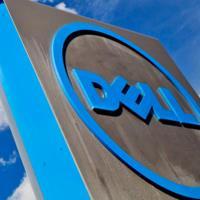by Jim Hillier for Daves Computer Tips
Is Windows 8 Just Another Vista?
I am on record as being a fan of Windows 8 and I reject many of the criticisms aimed at the new operating system as downright misinformation. It would appear however, that I am a member of an underwhelming minority. It’s no secret that adoption rates for Windows 8 have been slow, very slow. To verify that common perception, one need look no further than the current breakdown of desktop operating system market share as provided by the well respected NetMarketShare.com.
NetMarketShare.com Windows Operating System market share February 28th 2013:
| Windows 7 | 44.55% |
| Windows XP | 38.99% |
| Windows Vista | 5.17% |
| Windows 8 | 2.67% |
PC Pitstop Windows Operating System Market Share Research (February 2013):
Kinda rams it home, does it not?
As the late and great Julius Sumner Miller would say… ”Why is it so?”. It’s difficult to define exactly why users have not taken to Windows 8 en masse; all the negative talk from certain so called ‘experts’ hasn’t helped, but I don’t believe that would constitute a major deterrent. The old ‘devil you know’ syndrome would also likely be a contributing factor but again, on a somewhat minor scale. Here’s what I think; vast numbers of users are working on the “if it ain’t broke, it don’t need fixing” credo. To a certain extent, Microsoft has shot itself in the foot by making Windows 7 just too darn good! I believe we are witnessing the emergence of a Windows 7 loyalty brigade, in much the same way as diehard XP users are determined to hang on to that old and venerable operating system until it is finally rendered virtually unusable due to lack of support from essential software.
While I am generally a proponent of ‘leaving well enough alone’, there can sometimes be a problem with that approach… it doesn’t always make allowances for progress. Whether we like it or not; mobile devices, cloud computing, and all aspects of this burgeoning technology are undeniably the way of the future. We are heading inexorably toward a take anywhere/access anytime computing paradigm. If one needs further proof of the massive shift in emphasis, one need look no further than the resources Mozilla has invested in its ‘Boot to Gecko’ mobile operating system. Or indeed, the fact that Canonical (developer of the Ubuntu Linux distro) has been, and still is, working hard on Ubuntu for mobile devices; tablets, smartphones and Android.
This excerpt is shared with permission from davescomputertips.com.




